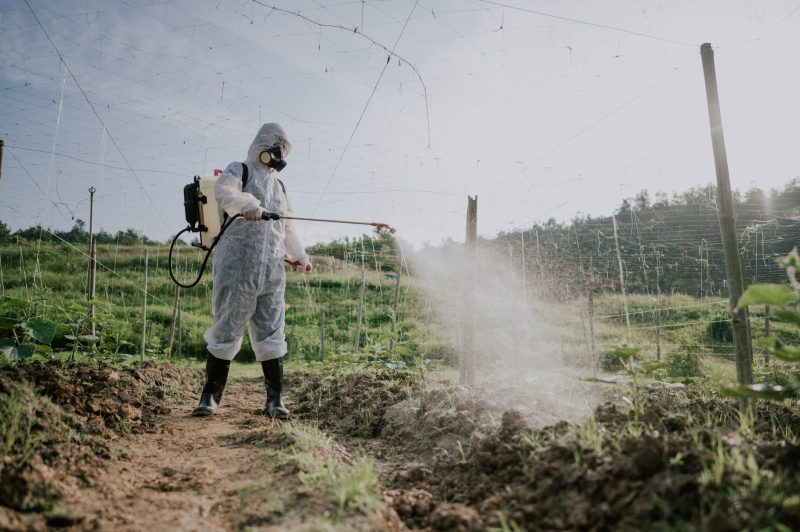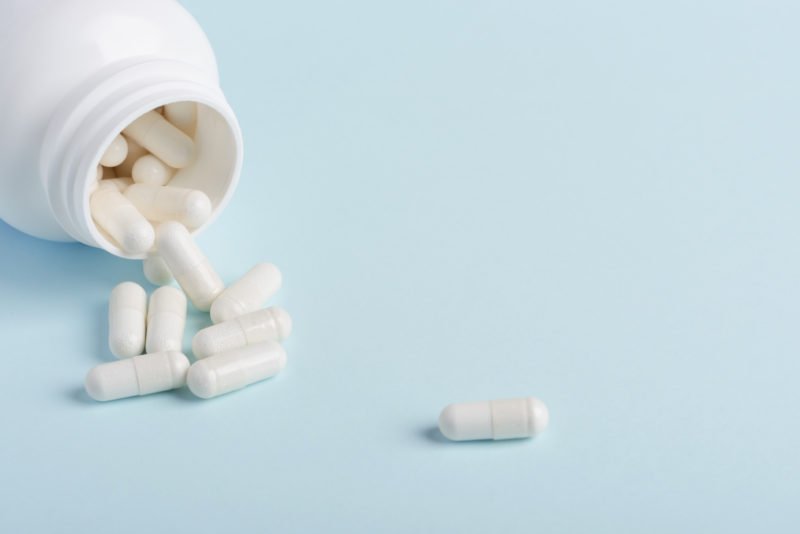If you’ve been injured by a defective product, you need an experienced Milwaukee product liability attorney to help you navigate the complexities of product liability law. At Phillip S Georges PLLC, our Milwaukee personal injury lawyers are committed to holding manufacturers, distributors, and retailers accountable for defective products that cause harm. Whether you’re dealing with a manufacturing defect, design flaw, or failure to warn, our team is here to fight for the compensation you deserve. Trust us to fight for your rights and secure the justice you need.

Have you been injured by a dangerous or defective product?
If you’ve been harmed by a dangerous or defective product, don't hesitate to seek justice. Our Milwaukee product liability lawyers are here to guide you through the legal process and help secure the compensation you deserve. Contact us today for a free case review, and let us fight for your rights. Your recovery and peace of mind are our top priorities.
Getting Help Is Easy
All you have to do is call The Wolf Pack® for the help you need in seeking the compensation you deserve. We’ll take care of the rest.
We Will Fight For You
Going up against large corporations can seem impossible, but you can have a team of fierce litigators on your side with The Wolf Pack®.
No Fees Unless You Win
Getting a case evaluation is free and requires no obligation. In fact, you won’t owe anything unless we win your case.
Put an Award Winning Firm on Your Side!
Types of Product Liability Cases
Product liability cases can involve a wide range of products and types of defects. Most product liability cases fit into one of these 3 categories: defective manufacturing, defective design, and failure to warn.
Defective Manufacturing
Defective manufacturing occurs when a product is improperly manufactured and becomes dangerous as a result. This can happen due to errors in the production process, such as:
- Using substandard materials
- Incorrect assembly of products
- Failing to adhere to design specifications
Examples of defective manufacturing cases include:
- A car with a faulty braking system due to poor assembly
- A batch of contaminated food products
- A toy with a broken part that poses a choking hazard
Defective Design
Defective design refers to flaws in the product’s design that make it inherently dangerous, even if manufactured correctly. In these cases, the entire line of products is typically affected. Examples include:
- A car with a high center of gravity, making it prone to rollover accidents
- A household appliance that poses a risk of fire
- A medical device that causes injury due to design
Failure to Warn (Marketing Defects)
Failure to warn cases involve products that lack adequate instructions or warnings about their proper use or potential risks. Manufacturers and sellers are required to provide sufficient warning to prevent misuse and ensure customer safety. Examples of failure to warn include:
- A medication without adequate warning about potential side effects
- An electrical appliance without instructions on safe usage
- A chemical product without proper hazard warning
Common Product Liability Cases We Handle
Wisconsin Product Liability Laws and Regulations
Product liability laws are designed to protect consumers from defective products that cause injury or harm. These laws hold manufacturers, distributors, and retailers accountable for ensuring that their products are safe for use. Here are some key points to know about product liability laws and regulations in Wisconsin when navigating a potential product liability case:
In Wisconsin, the statute of limitations for product liability cases is generally three years from the date of injury. This means that a lawsuit must be filed within three years of the injury, or the right to sue will be lost.
Wisconsin has a statute of repose for product liability cases, which imposes a 15-year limit from the date the product was manufactured, distributed, or sold, regardless of when the injury occurred, with some exceptions.
Wisconsin follows the doctrine of strict liability for product liability cases. This means that a manufacturer can be held liable for a defective product regardless of whether they were negligent. To establish strict liability, a plaintiff must prove the following:
- The product was defective when it left the manufacturer’s control.
- The product was unreasonably dangerous.
- The defect caused the plaintiff’s injury.
- The product was being used as intended or in a reasonably foreseeable manner.
Wisconsin follows a comparative negligence system, which can affect product liability cases. If the injured party is found to be partially at fault for their injuries, their compensation can be reduced by their percentage of fault. However, if the plaintiff is found to be more than 50% at fault, they cannot recover damages.
Wisconsin allows defendants to use the “state-of-the-art” defense, which means that a manufacturer can argue that the product’s design or manufacturing process conformed to the highest level of scientific and technical knowledge available at the time the product was made.
Understanding the Product Liability Legal Process
Navigating the product liability legal process can be complex and overwhelming. Here’s a detailed guide to help you understand the steps involved in pursuing a product liability claim in Wisconsin when you work with one of our product liability attorneys.
1. Consultation with an Attorney
The first step is to consult with one of our experienced product liability attorneys. During this initial meeting, you will discuss the details of your case, including:
- How the injury occurred
- The type of product involved
- Any evidence you have, such as the defective product, medical records, and witness statements
Your attorney will evaluate the merits of your case to determine if you have a valid claim, then evaluate the extent of damages you’ve suffered to estimate potential compensation.
2. Investigation
Your attorney will carry out an in-depth investigation in order to gather evidence to support your claim. These efforts may include:
- Examining the defective product
- Reviewing maintenance and manufacturing records
- Consulting with experts and/or witnesses to understand the defect and its impact
3. Filing the Claim
Once the investigation is complete, your attorney will file a formal complaint with the appropriate court. This document outlines:
- The facts of the case
- The legal basis for the claim
- The damages you are seeking
4. Discovery
The discovery phase involves the exchange of information between both parties. This process may include:
- Depositions (interviews under oath) of involved parties and witnesses
- Requests for documents related to the product and the incident
- Interrogatories (written questions) that must be answered under oath
5. Settlement Negotiations
Many product liability cases are resolved through settlement negotiations. Your attorney will work to negotiate a fair settlement that compensates you for:
- Medical expenses
- Lost wages
- Pain and suffering
- Other related costs
6. Trial (if needed)
If a settlement cannot be reached, your case will proceed to trial. During the trial, both sides will present their arguments, and a judge or jury will determine the outcome. The trial process includes:
- Opening statements by both parties
- Presentation of evidence and witness testimonies
- Cross-examinations
- Closing arguments
- Verdict and, if applicable, the awarding of damages
7. Appeals
If either party is dissatisfied with the trial’s outcome, they may file an appeal. An appeals court will review the case for legal errors and may uphold, reverse, or modify the original decision.
Frequently Asked Questions
Common types of product defects include:
- Manufacturing Defects: Issues that arise during the production process, resulting in a product that is unsafe.
- Design Defects: Inherent flaws in the product’s design, making it dangerous even when manufactured correctly.
- Failure to Warn (Marketing Defects): Insufficient instructions or warnings about the product’s proper use and potential hazards.
The following parties can be held liable in product liability cases:
- Manufacturers: Companies that produce the product.
- Distributors: Businesses that supply the product to retailers.
- Retailers: Stores that sell the product to consumers.
To be successful in a product liability case in Wisconsin, you generally need to demonstrate:
- The product had a defect.
- The defect was present when the product left the defendant’s control.
- The defect caused your injury.
- You were using the product as intended or in a reasonably foreseeable way.
You might be eligible to recover:
- Medical Expenses: Costs for treating injuries caused by the defective product.
- Lost Wages: Compensation for income lost due to inability to work.
- Pain and Suffering: Compensation for physical pain and emotional distress.
- Property Damage: Reimbursement for any property damaged by the defective product.
- Punitive Damages: Additional damages awarded in cases of particularly egregious conduct to punish the defendant.
In Wisconsin, you generally have three years from the date of the injury to file a product liability lawsuit. There is also a statute of repose that may limit claims to within 10-15 years from the product’s manufacture or sale.
Yes, if possible, keep the defective product as evidence and avoid attempting to repair it. Preserving the product in its defective state is crucial for building your case.
Yes, Wisconsin follows a comparative negligence rule. You can still recover damages as long as you are not more than 50% at fault. However your compensation will be reduced in proportion to your degree of fault.
- Seek Medical Attention: Your health and safety should be your top priority.
- Preserve the Product: Keep the product in its current state.
- Document Everything: Take photos, save receipts, and gather any related documents.
- Consult a Lawyer: Contact a product liability attorney to evaluate your case and guide you through the legal process.
If the product was used by someone else and caused your injury, you might still have a valid claim. The key factors are whether the product was defective and if the injury was foreseeable.
Yes, a recall does not eliminate your right to file a claim. In fact, a recall can support your case by showing that the product was acknowledged as defective by the manufacturer.
While general product liability laws apply to all products, specific categories, like medical devices, pharmaceuticals, and automotive parts, may have additional regulations and standards. An experienced lawyer can help navigate these specific laws.
Yes, if multiple people have been harmed by the same defective product, you may be able to join a class action lawsuit. This provides an efficient way to pursue claims against large manufacturers or corporations.
A product liability lawyer can:
- Assess your case and determine if you have a valid claim.
- Collect and preserve evidence, including expert testimony.
- Guide you through the legal process and handle all filings and negotiations.
- Represent you in court if necessary to secure fair compensation.

















